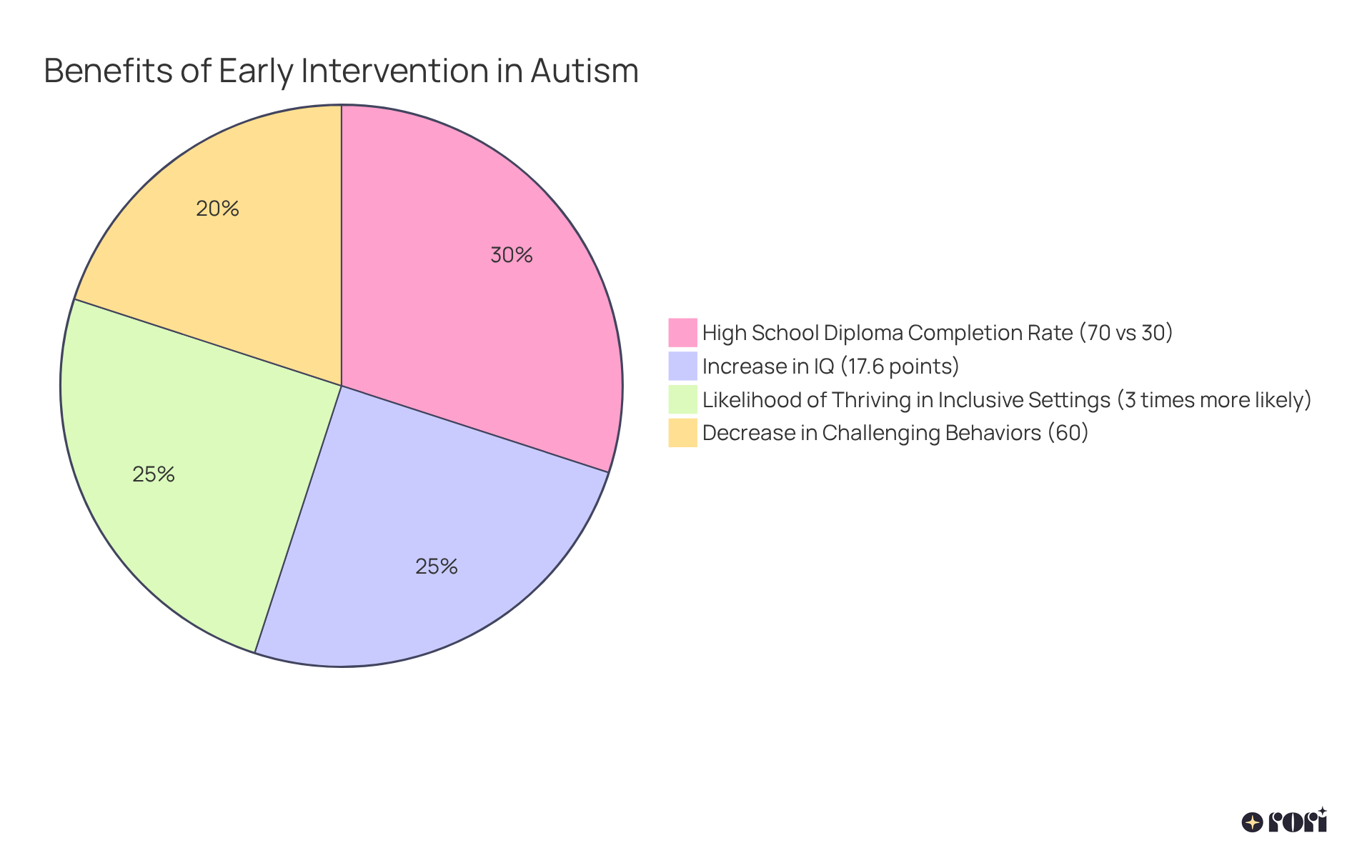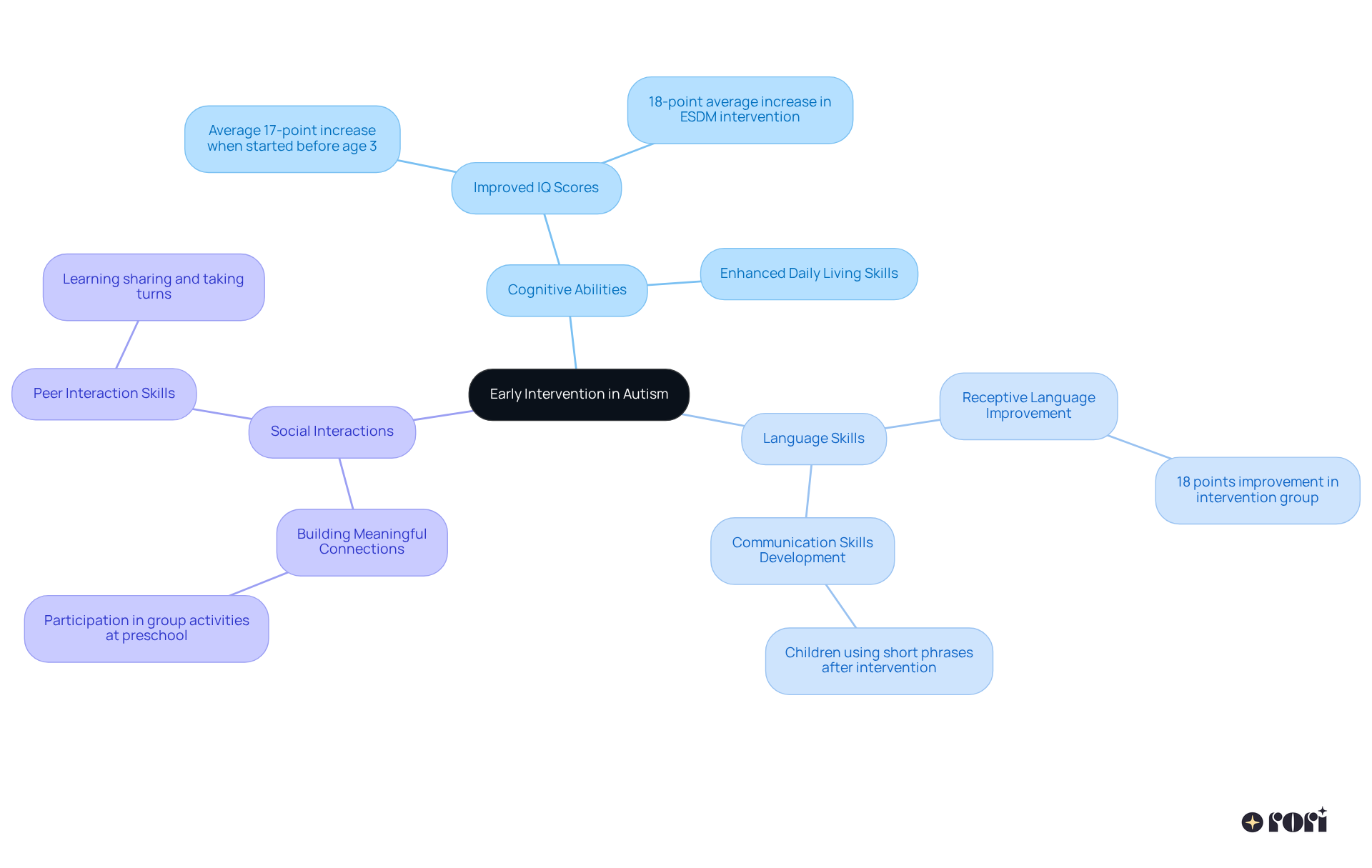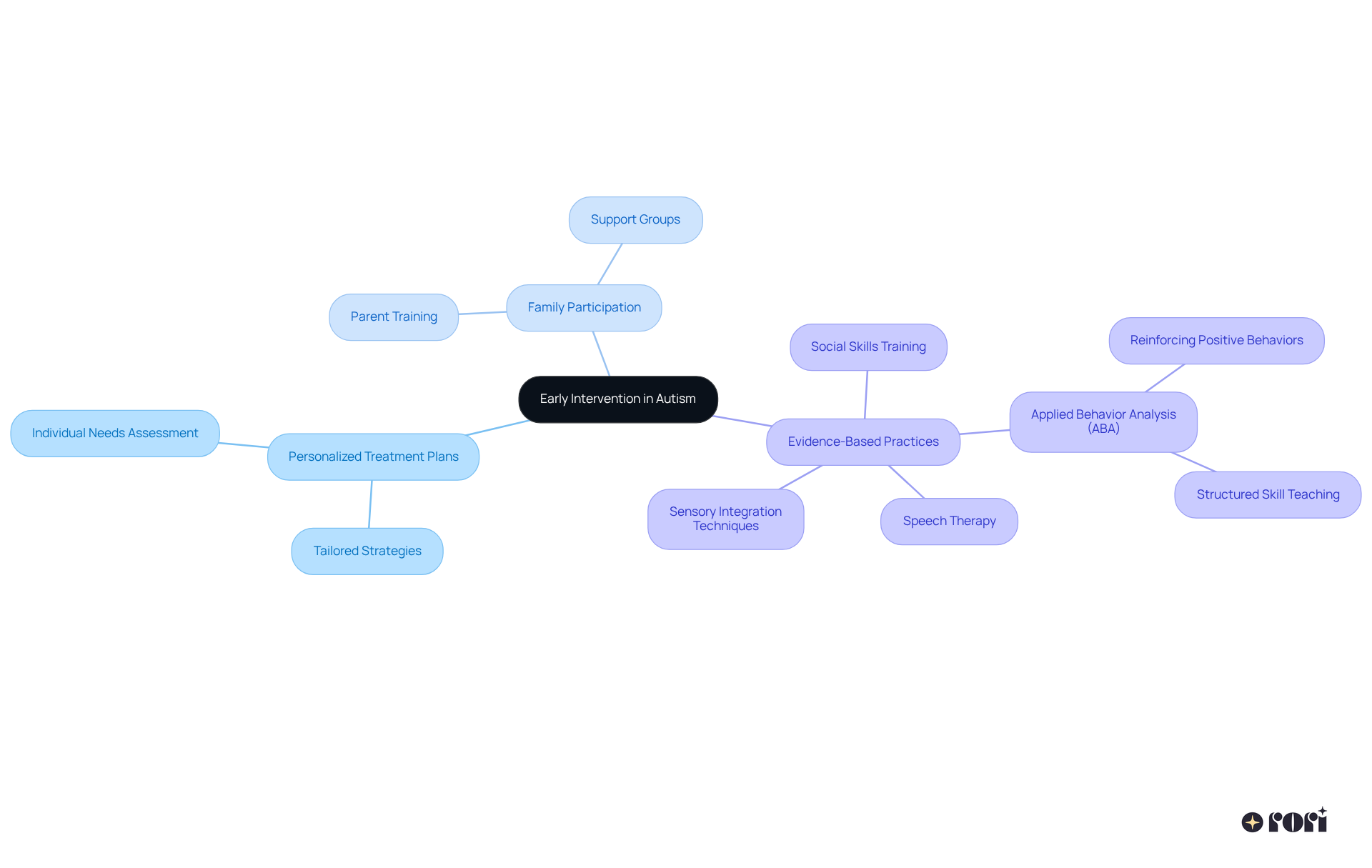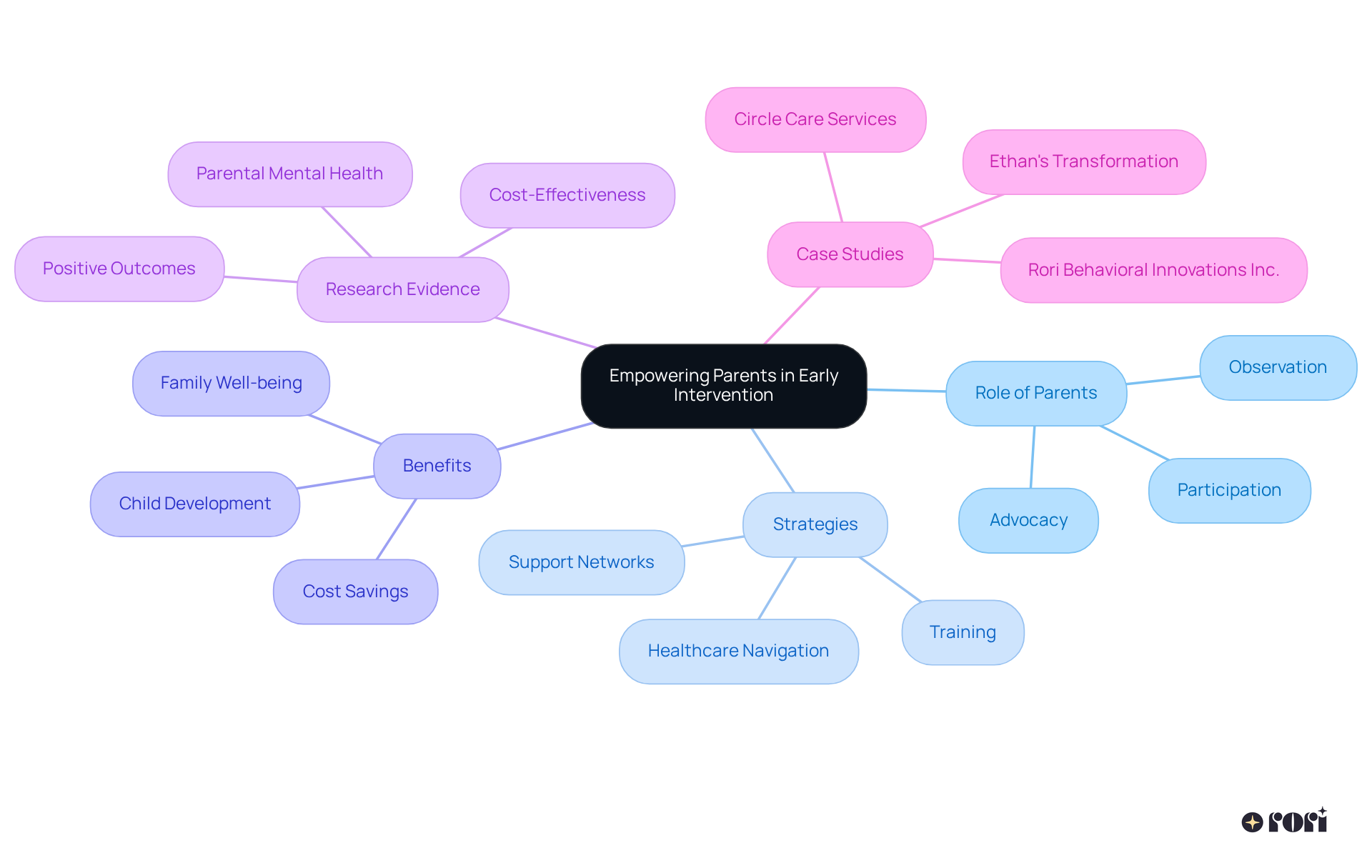Early intervention in autism is incredibly important! It offers timely support that can really enhance developmental outcomes for children diagnosed with Autism Spectrum Disorder (ASD). You see, early intervention can lead to improvements in cognitive skills, communication, and social interactions. Studies show that children who receive this early support are more likely to thrive both academically and socially. This really highlights the importance of getting prompt therapeutic services!
As a parent, you might be wondering how to navigate this journey. It can feel overwhelming, but remember, you’re not alone! Many families have found that reaching out for early intervention has made a world of difference. Let’s explore this together and see how we can help your child shine! We’re here to support you every step of the way!
The early years of a child's life are such a crucial time for development, especially for those diagnosed with Autism Spectrum Disorder (ASD). Early intervention can really make a difference, offering a wonderful opportunity to enhance communication, social skills, and overall quality of life for these children. 🌟
However, many families face challenges in accessing timely support, which can be frustrating. What can we do to ensure that every child receives the early assistance they need to thrive? Let’s explore this together! We’re here to help you every step of the way!
The importance of early intervention in autism revolves around providing timely therapeutic services and support for individuals diagnosed with Autism Spectrum Disorder (ASD), ideally starting from birth to three years of age. This proactive approach highlights the importance of early intervention in autism, based on the idea that early identification and treatment can lead to significantly improved developmental outcomes. It includes various strategies like Applied Behavior Analysis (ABA), speech therapy, and occupational therapy, all tailored to meet the unique needs of each child.
The main goal here is to help develop essential skills in communication, social interaction, and daily living, which ultimately enhances the overall quality of life and promotes greater independence. Studies show that children who receive prompt assistance can see an average increase in IQ of 17.6 points and show significant improvements in cognitive and adaptive skills.
Isn't that amazing? Children who start treatment by age two are three times more likely to thrive in inclusive educational settings compared to their peers who begin later. The effectiveness of early support emphasizes the importance of early intervention in autism, as 50-75% of children receiving intensive ABA treatment for two or more years show substantial progress. This really underscores the importance of early intervention in autism, demonstrating the vital role that timely support plays in fostering positive outcomes for individuals with autism.
Additionally, the importance of early intervention in autism can result in saving an estimated $1.3 million per individual over their lifetime. Kids in initial support programs have a high school diploma completion rate of 70%, in contrast to only 30% for those without it. Even more encouraging is that children in these programs experience a 60% decrease in challenging behaviors within just six months of starting therapy, showcasing the immediate benefits of early support. Let’s explore this together and see how we can make a difference!

The importance of early intervention in autism is truly significant! Studies consistently demonstrate the importance of early intervention in autism, indicating that young individuals who receive early support services see better results in various developmental areas, such as cognitive abilities, language skills, and social interactions. For instance, research indicates that children who start receiving support before they turn three are more likely to develop strong communication skills and build meaningful social connections.
Moreover, the importance of early intervention in autism is evident as acting quickly can lessen the severity of autism symptoms, leading to better long-term outcomes in education and independence. By addressing developmental delays early on, families can understand the importance of early intervention in autism to help their children embark on a journey toward success and fulfillment. Let’s explore this together! We’re here to help you every step of the way!

The importance of early intervention in autism is highlighted by key components such as:
Personalized treatment strategies are crafted to fit each individual's unique needs, ensuring that the interventions are not just relevant but truly effective. And let's not forget about family involvement! Parents and caregivers play a crucial role in reinforcing the skills learned during therapy sessions. Strategies like parent training and support groups empower families to actively participate in their child's development, creating a nurturing environment for growth.
One of the standout evidence-based practices is Applied Behavior Analysis (ABA). This approach focuses on reinforcing positive behaviors and teaching new skills through structured methods. Studies reveal that children who engage in early support programs, like ABA, can experience remarkable progress. For instance, one child reduced frustration and outbursts by an impressive 70% after just a year in an ABA-focused program! Other effective strategies include:
All aimed at enhancing overall development. By combining these elements, we not only address immediate developmental needs but also lay a strong foundation for future success. Research highlights the importance of early intervention in autism, showing that early support can lead to better educational and employment outcomes later in life. So, let’s explore this together and find the best path for your child!

Enabling parents is essential for recognizing the importance of early intervention in autism to ensure the effectiveness of initial support for youth with autism. As the first observers of developmental issues, parents play a crucial role in advocating for their children's needs. Effective early support programs emphasize the importance of early intervention in autism by equipping parents with vital tools and resources to nurture their child's development at home.
This includes:
By fostering a cooperative connection between parents and specialists, these programs enhance the efficiency of strategies, leading to better outcomes for children.
Research highlights the importance of early intervention in autism, as programs emphasizing parental participation not only speed up a child's development but also greatly improve the overall well-being of families. They help minimize stress and boost confidence in addressing their child's needs. Effective parent training programs have shown beneficial effects on youth development, emphasizing the importance of early intervention in autism by incorporating parental education into treatment strategies.
Significantly, prompt support can save an estimated $1.3 million per individual over their lifetime by reducing the need for long-term special education and intensive care. Case studies, like Ethan's transformation, illustrate the importance of early intervention in autism and parent training, showcasing how children can significantly improve their communication and social skills.
Furthermore, 38 studies have utilized training technology, highlighting effective strategies for parental involvement that can lead to better outcomes. Let’s explore this together and see how we can support each other on this journey!

The importance of early intervention in autism truly cannot be overstated. By tackling developmental challenges as soon as possible, families can open doors for their children to experience incredible growth in communication, social skills, and overall independence. This proactive approach not only boosts the quality of life for individuals with Autism Spectrum Disorder (ASD) but also lays a solid foundation for their future success.
Throughout this discussion, we’ve highlighted some key points that showcase the transformative power of early intervention strategies like Applied Behavior Analysis (ABA), speech therapy, and active parental involvement. Research shows that children who receive timely support often see significant improvements in cognitive abilities and social interactions, with many even experiencing a notable increase in IQ. When personalized treatment plans are paired with family participation, the effectiveness of these interventions really shines, proving that collaboration between parents and professionals leads to much better outcomes.
With all this in mind, it’s clear that early intervention is not just beneficial; it’s essential for children with autism. As families and communities work to implement these strategies, advocating for access to early intervention services and support systems becomes crucial. By prioritizing early identification and intervention, we can ensure that every child with autism has the chance to thrive and reach their fullest potential. The journey toward meaningful development begins with timely action—let’s commit to making that difference today! 😊
What is early intervention in autism?
Early intervention in autism refers to providing timely therapeutic services and support for individuals diagnosed with Autism Spectrum Disorder (ASD), ideally starting from birth to three years of age.
Why is early intervention important for children with autism?
Early intervention is important because it can lead to significantly improved developmental outcomes, helping to develop essential skills in communication, social interaction, and daily living, which enhances overall quality of life and promotes greater independence.
What types of therapies are included in early intervention for autism?
Early intervention may include various strategies such as Applied Behavior Analysis (ABA), speech therapy, and occupational therapy, all tailored to meet the unique needs of each child.
What are the potential cognitive benefits of early intervention?
Studies show that children who receive prompt assistance can see an average increase in IQ of 17.6 points and demonstrate significant improvements in cognitive and adaptive skills.
How does the timing of intervention affect educational outcomes?
Children who start treatment by age two are three times more likely to thrive in inclusive educational settings compared to their peers who begin later.
What percentage of children show progress with intensive ABA treatment?
Between 50-75% of children receiving intensive ABA treatment for two or more years show substantial progress.
What financial benefits can result from early intervention?
Early intervention can save an estimated $1.3 million per individual over their lifetime.
How does early intervention affect high school graduation rates?
Kids in initial support programs have a high school diploma completion rate of 70%, compared to only 30% for those without such support.
What immediate behavioral improvements can be expected from early intervention?
Children in early intervention programs experience a 60% decrease in challenging behaviors within just six months of starting therapy.